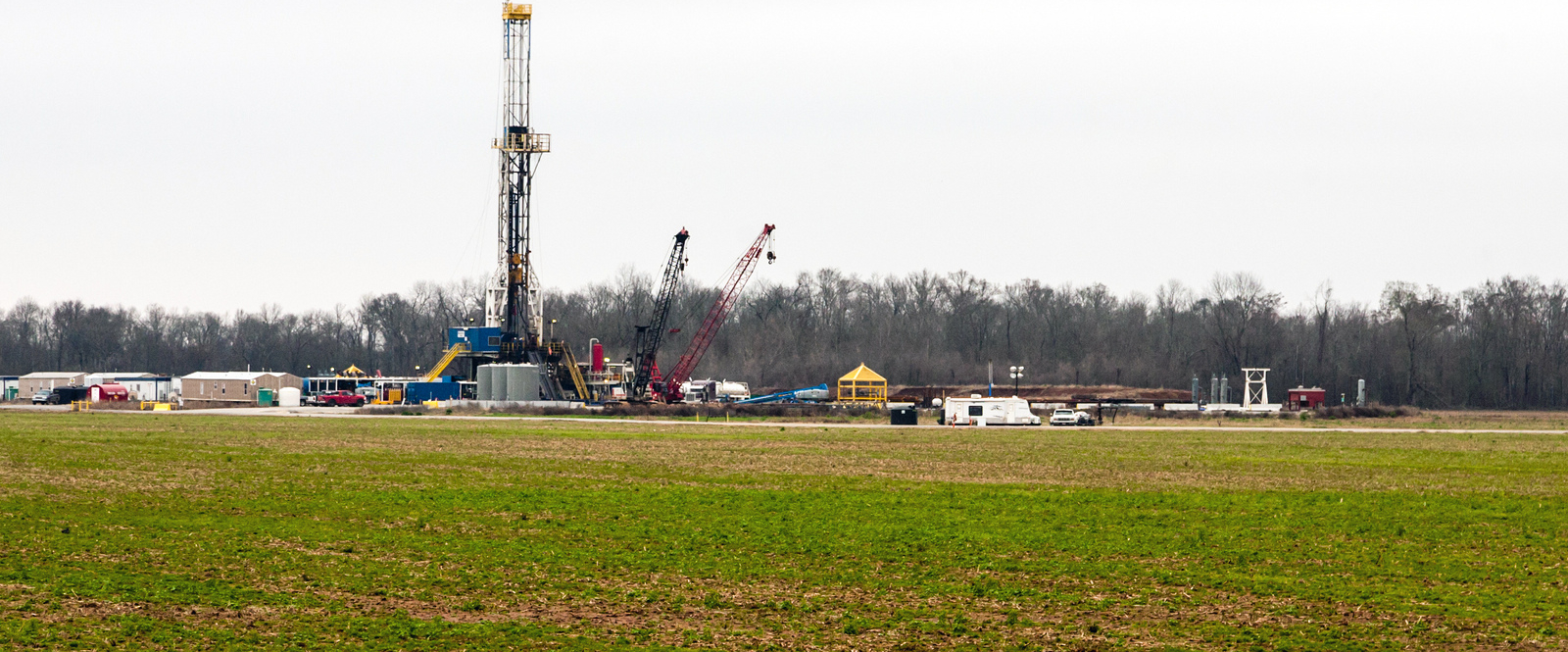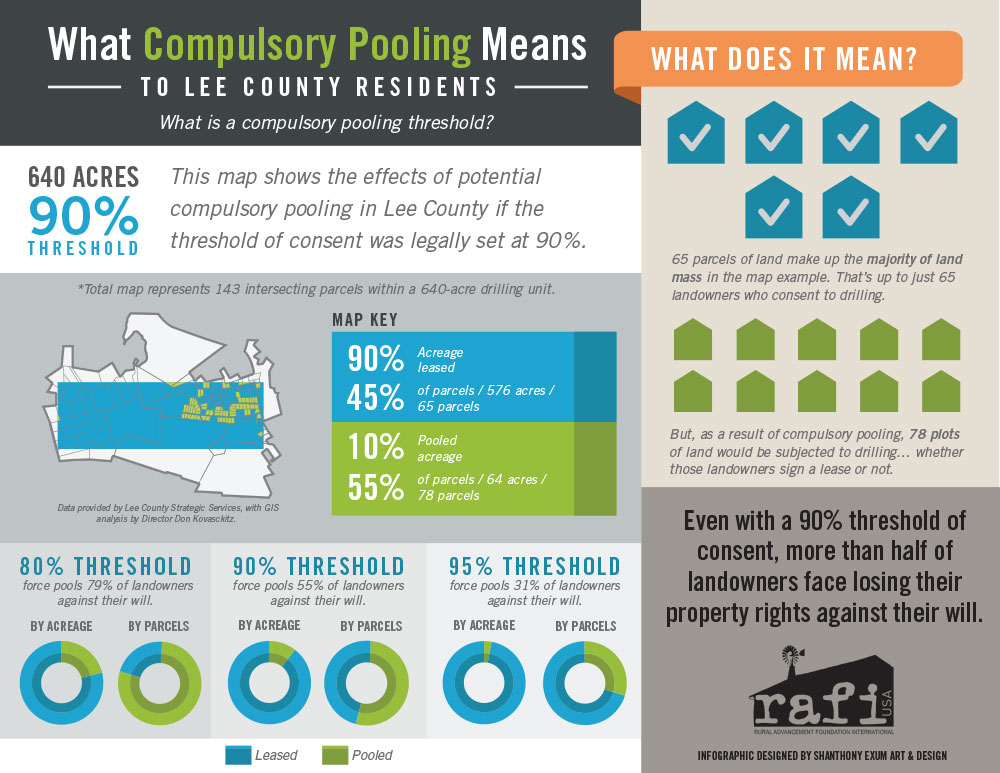The controversial issue of hydraulic fracturing for natural gas, or fracking, has many angles here in North Carolina. One of the most important and least talked about components deeply affects private property rights, and it’s called “forced / compulsory pooling.” Compulsory pooling is used by oil and gas companies to force unleased or non-consenting landowners into oil and gas leases. It is used when oil and gas operators are unable, through voluntary agreement, to meet the acreage requirements for forming a drilling unit. Compulsory pooling can result in the loss of your property rights and allow oil and gas companies to force the leasing of your property.
As you may know, fracking may be coming soon to North Carolina and right now a committee called the Mining and Energy Commission is working on putting together the regulations that will govern how fracking is done here. These regulations must be approved by the NC General Assembly before taking effect.
Last week, three of four Mining and Energy Commission members on the Study Group voted to recommend that 90% of the acres in a drilling unit be leased before other landowners can be forced to sell their gas. These recommendations will not be finalized until acted upon by the North Carolina General Assembly.
What does this mean?
If the General Assembly accepts the recommended 90% threshold, on average, more than half of landowners in a drilling unit could be compulsory pooled. When this recommendation goes before the General Assembly, it’s crucial that our lawmakers hear from us that we want the new law to be more protective of landowners.
What else did the Study Group do at the meeting?
- Recommend that compulsorily pooled landowners pay a risk penalty or surrender their working interest and collect a royalty set by the state.
- Recommend that landowners on 10 acres or less be exempt from the risk penalty.
- Recommend that there be a surface use agreement in place with a consenting landowner before submitting a pooling application.
The Study Group had previously recommended that compulsory pooling not allow the company to use the surface without the landowner’s consent, and that the owner of compulsorily pooled land cannot be held liable for damages that take place as a result of fracking.
While many of the landowner protections recommended by the Study Group would provide strong protection for compulsorily pooled landowners, a stronger outcome would have been a vote to not allow compulsory pooling.
Thanks to RAFI-USA for their excellent set of resources on this critical issue. You can learn more and sign up for specific action alerts here.


